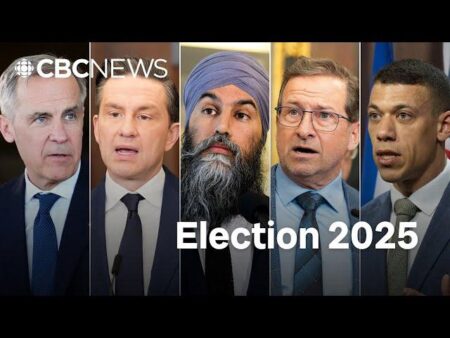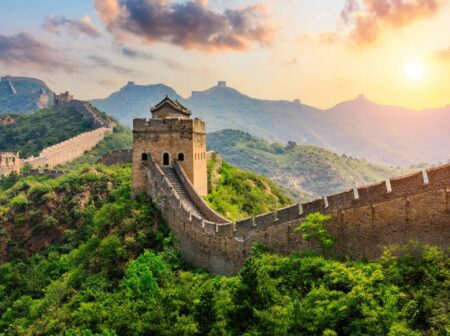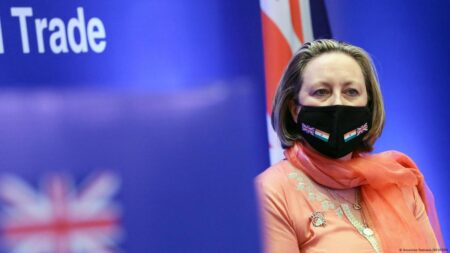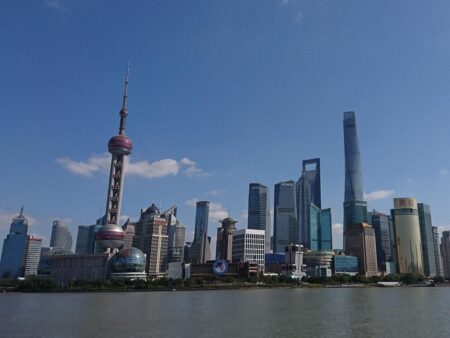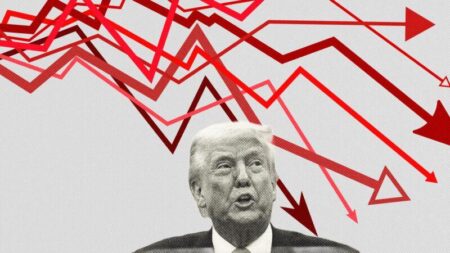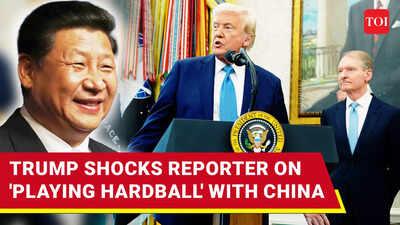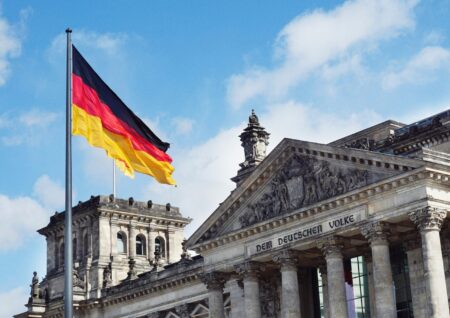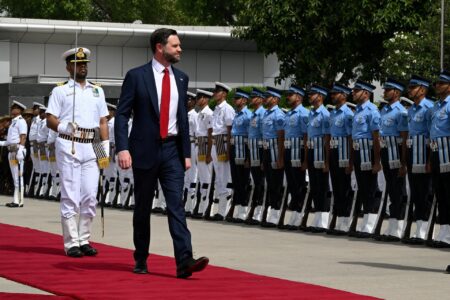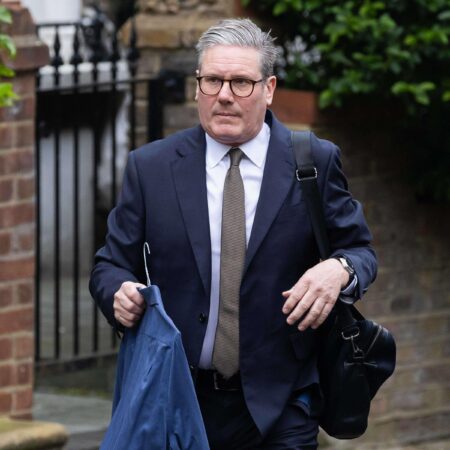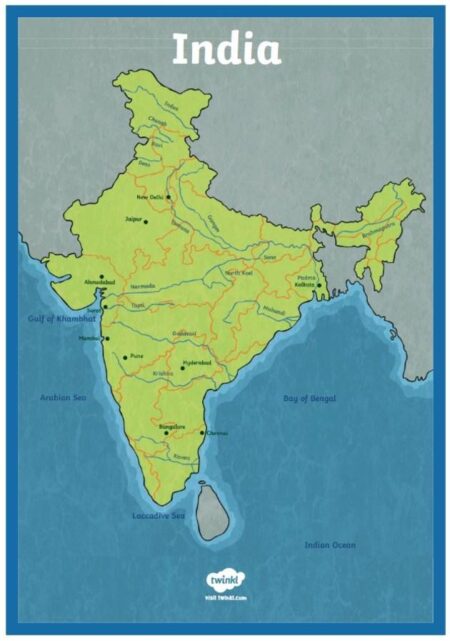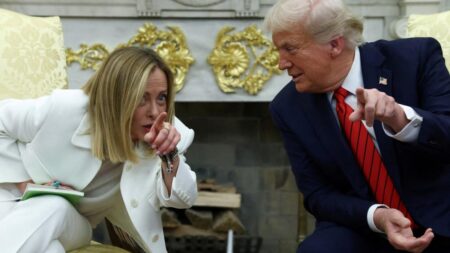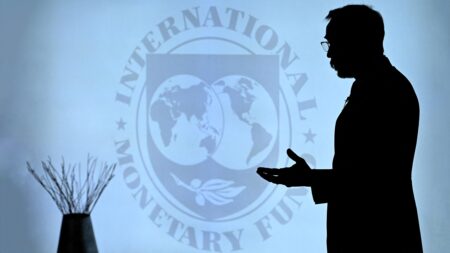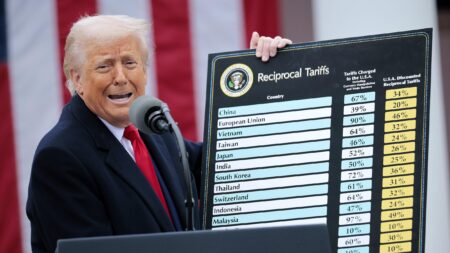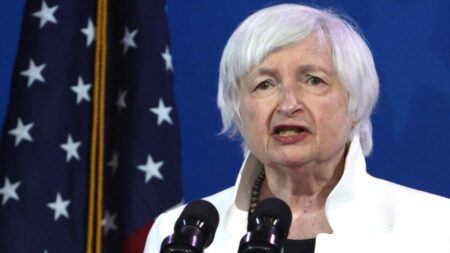In Canada, the leading election contenders are sparking a wave of investor enthusiasm for a new pro-business era. As parties roll out their platforms, enticing promises of tax reforms and simplified regulations are stealing the spotlight, with the potential to transform the nation’s economic landscape.
Browsing: economic policy
China is reportedly considering a bold step: exempting select U.S. products from tariffs. This strategic move could pave the way for a significant reduction in trade tensions between the two nations. As negotiations continue, this potential adjustment shines a glimmer of hope for stabilizing economic relations and fostering collaboration
As pivotal trade discussions with the U.S. loom, UK Treasury chief James Reeves has taken a moment to address the concerns voiced by former President Trump about the state of the global economy. Reeves underscored that working together is essential to tackle our shared economic hurdles.
Amid the rising tensions of the US trade war, China is doubling down on its dedication to maintaining domestic stability. Beijing is not just focusing on economic support; it’s actively championing resilience in the face of external challenges, all while striving to boost public confidence in its future.
A UK minister has passionately highlighted that the recent deal with the EU signifies an exciting new chapter in their relationship, assuring everyone that there will be no return to the “arguments of the past.” This bold statement is designed to instill confidence among stakeholders as both sides work together to enhance cooperation in a post-Brexit landscape.
Italy has officially stated that the proposed merger terms between UniCredit and BPM are designed to exclude any support for Russia. The government is committed to ensuring that this financial integration adheres strictly to sanctions and international standards, especially in light of the current geopolitical tensions
UniCredit’s board gathered to tackle the Italian government’s hurdles surrounding the proposed BPM deal. As regulatory challenges intensify, this banking powerhouse is navigating a complex landscape that could impact its ambitious expansion plans.
Trump’s trade war and looming threats of annexation have dramatically reshaped Canada’s election landscape, casting a shadow over pressing domestic issues. As candidates navigate this turbulent terrain, they find themselves wrestling with the far-reaching implications of foreign policy. With economic uncertainty on the rise, voter anxieties are intensifying as the polls draw near.
In light of President Trump’s attempts to smooth over trade tensions, a wave of skepticism has swept across China. Analysts and officials alike are voicing their doubts, casting a critical eye on the sincerity of these gestures. With tariffs still in place and economic frictions simmering, many are left wondering if this olive branch is genuine or just another political maneuver.
Japan is urging G20 nations to step up and take bold action to stabilize the increasingly volatile global markets. The Japanese government has raised alarms about the potential fallout from U.S. tariffs, cautioning that these measures could threaten economic recovery efforts around the globe.
Germany is grappling with a pressing dilemma as consumer spending struggles to keep pace with soaring savings. Amidst economic uncertainty and persistent high inflation, many Germans are choosing to prioritize their financial security over splurging on non-essential items. This shift in mindset is casting a shadow over retail growth and complicating recovery efforts across the nation.
In a dynamic strategic meeting in New Delhi, U.S. Senator J.D. Vance and Indian Prime Minister Narendra Modi came together to discuss the final touches on a groundbreaking trade deal. Both leaders highlighted the importance of collaboration to navigate potential U.S. tariffs on Indian goods, showcasing their commitment to strengthening economic ties.
Japanese Prime Minister Ishiba passionately underscored the importance of “fairness” in the current currency discussions with the United States. He highlighted how crucial stable exchange rates are for fostering robust economies in both nations. Japan is committed to securing equitable trade conditions that benefit all parties involved.
Bloomberg Australia dives into the critical crossroads of the housing crisis and surging immigration, highlighting how a wave of newcomers is intensifying the already pressing affordability issues. Experts caution that without strategic interventions, property prices could keep climbing, putting immense pressure on countless residents.
UK Prime Minister Keir Starmer engaged in talks with former President Donald Trump about trade, as confirmed by Downing Street. These discussions, focused on bolstering economic connections, underscore the ongoing efforts to adeptly maneuver through the complexities of post-Brexit trade dynamics.
India is on the brink of seizing a substantial portion of U.S. business that has long been under China’s influence, as companies actively search for alternatives in response to rising geopolitical tensions. With its competitive labor costs and an expanding market, India is set to become a pivotal player in the global supply chain landscape.
In a significant meeting at the White House, former President Donald Trump and Italian Prime Minister Giorgia Meloni came together to tackle the pressing issues surrounding trade agreements amidst growing tariff uncertainties. Both leaders passionately underscored the importance of collaboration, aiming to strengthen the economic bonds that unite the U.S. and Italy.
The IMF and World Bank have greenlit exciting new bailout packages for Argentina, designed to bolster its economy in the face of persistent inflation challenges. These vital measures are set to offer essential support as the nation charts a course through financial uncertainty.
Former President Trump has proposed an exciting idea for a US-Europe summit as tariff discussions heat up! Meanwhile, Congressman J.D. Vance is deep into his second day of crucial talks in Italy. These meetings are set to tackle the vital issues of trade relations and economic collaboration between the two regions.
US Treasury Secretary Janet Yellen is gearing up for an important meeting with Argentina’s President Javier Milei this Monday. Their talks are anticipated to delve into crucial topics like financial stability and enhancing the economic partnership between the two countries, especially in light of Argentina’s current economic hurdles

